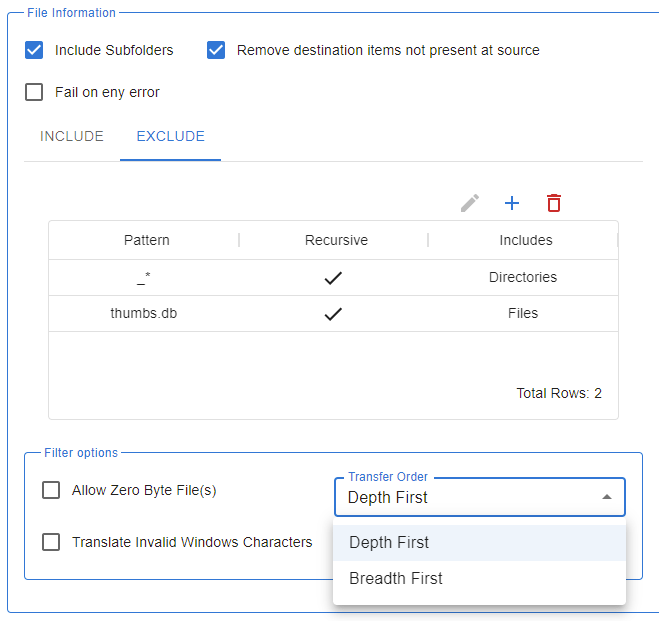
When managing financial transactions involving payment card data, protecting personally identifiable information (PII) and following industry standards like Payment Card Industry Data Security Standards (PCI DSS) is a top priority. Whether online, at checkout, at a payment kiosk, or while transferring large batches of payment data as a routine business process, securing sensitive personal and financial data during a transaction is a constant challenge that keeps IT teams up at night.
No one wants to wake up to find their name in the paper because of a data breach, which is why PCI DSS requirements are a driving force behind the trend of managed file transfer (MFT) adoption in organizations that manage consumer financial transactions data. PCI DSS, administered by the Payment Card Industry Security Standards Council, is the data security standard for organizations that handle credit cards, debit cards, and similar transactions. And while not a law, it is often cited within data protection and data privacy laws as a standard by which an organization’s compliance with state privacy and data protection regulations is measured.
Understand Your Risk for Data Breach Penalties
Meeting the PCI DSS standard will help keep your company’s name out of the newspapers. And there are compelling financial reasons for doing so. If your company has a data breach where customer payment data is compromised, you can expect costly penalties and consequences such as:
- Lawsuits
- Negative company publicity
- Loss of business partners and customers
- Fines that may exceed over $100,000 a month
- Additional fines for each cardholder
Secure File Transfer: Mitigate Your Risk
All organizations that manage payment card data and transactions are expected to follow PCI DSS guidelines to minimize the risk of an error or attack that compromises cardholder data integrity. This is a risk all companies assume when completing a financial transaction or managing those transactions’ aggregated data. That is why many companies with that responsibility are turning to Diplomat MFT by Coviant Software as a secure file transfer solution that automates and controls file transfers containing cardholder data, helping to maintain compliance by:
- Reducing human error and operating costs
- Following a consistent file transfer standard within the organization
- Centralizing management of file transfers
- Providing full auditing and alerts on transfers and system configurations
With risks so high and costs so steep, there’s plenty of incentive to protect sensitive customer data and meet PCI DSS compliance. That’s why a managed file transfer is so popular. MFT is time-tested and reliable, simple to use, and a cost-effective tool in an organization’s data protection arsenal. Financial services organizations like banks, insurance companies, and brokerages trust MFT. With card-based payments now the norm for in-store and online purchases, retailers and other consumer services organizations follow suit.
Here’s the Solution
Coviant Software’s Diplomat Managed File Transfer family of MFT products automates, integrates, and controls secure file transfers to any endpoint, helping organizations meet PCI DSS requirements. The robust feature set built into Diplomat satisfies PCI DSS requirements where ordinary file transfer protocol (FTP) services do not. What features set MFT apart and that organizations involved with managing financial and transactional data require?
- Automation – automating manual processes increases operation efficiency and reduces the chance for error
- Encryption – end-to-end encryption prioritizes security and protects cardholder data when it is most vulnerable, in transit
- Customization – easy workflow development, maintenance, and monitoring that is customized to suit your company’s unique needs
- Auditing – full audits on all transfers and system configuration
- Ease of Use – the software is simple to configure and user friendly, even for non-IT members
- Scalability – ability to scale with company growth and increased file transfers
- Alerting – job status alerts help quickly and effectively identify errors should they occur
- Delegation – role-based administration
- Archiving – file archiving and retention allows you to track file movements
PCI DSS requirements often change, which can make compliance difficult. MFT serves as a turn-key solution for the IT team, which allows them to help the business team. With security at the top of mind, companies need to understand the risks of financial security breaches and the necessary measures to mitigate associated risks.
As an industry leader in MFT platforms, Coviant Software boasts awards ranging from Best Financial Services Solution, Best Vendor Support, and Best Business Value. We’ve earned those plaudits because Diplomat MFT gets the job done and easily, relieving your IT team and business users of burdensome file transfer automation scripting problems and chaotic, broken processes.
Want more information on how managed file transfer solutions are shaping the financial service industry? Or maybe you want to explore ways to keep your company out of the newspaper for the wrong reasons? Go check out Diplomat Managed File Transfer for more information. While you’re there, you can also download a free trial of Diplomat MFT.
Request your Free Trial



